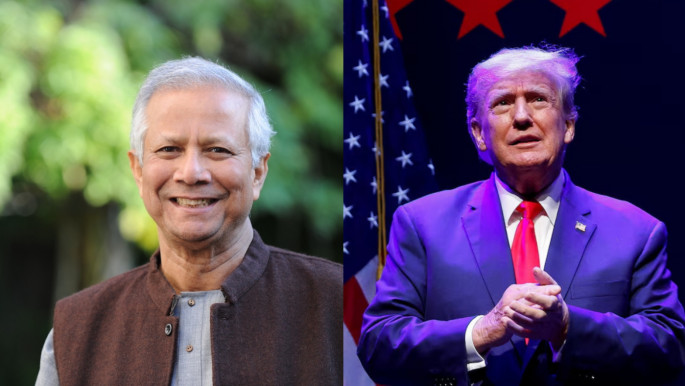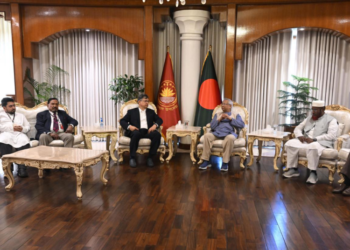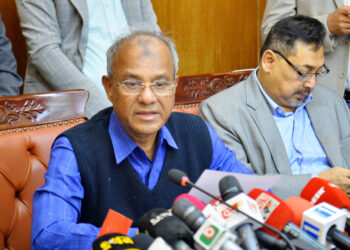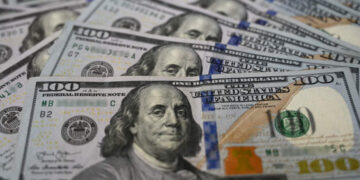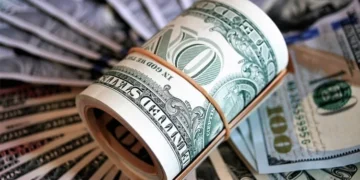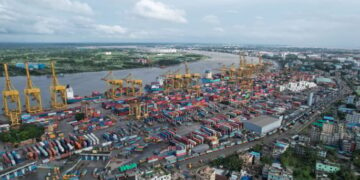The US temporarily suspends and lowers tariffs for Bangladesh and other countries as a sign of its changed trade policy.
America, in one of its key moves in global trade, has taken an important decision by announcing a 90-day respite along with a 10 percent reduction in reciprocal tariffs for Bangladesh and other countries. This decision was confirmed through official statements by the White House and endorsed through various public statements on various social networking sites.
The policy revision is a remarkable shift in terms of the Biden administration’s approach towards attaining economic cooperation globally. While temporary relief in terms of reduced tariffs has been given in respect of some countries, other tariffs have also increased against Chinese imports, reflecting an increased and strategic alignment of U.S. trade interests.
Read More: The Ultimate Tribute: How Bangladesh Honors Its Foreign Legends
Bangladesh Among Beneficiaries
Bangladesh has been formally included in the list of countries to benefit from tariff relief. This has come at a time when the South Asian nation has been augmenting its trade footprint in the world, primarily in its textile and garment industry, driven largely through exports to America.
The tariff suspension should bring short-term, although sizable, stimulus to Bangladesh’s export industry, generating greater trade movement and hopefully sowing the seeds of potential for future negotiations.
Professor Muhammad Yunus Honors U.S. President
Bangladesh Nobel laureate and renowned social entrepreneur Professor Muhammad Yunus thanked U.S. President Joe Biden in a social media update shortly afterward. In his statement, Professor Yunus welcomed Bangladesh’s inclusion in tariff relief and thanked the administration for its move.
He also discussed his continuing cooperation with US officials in terms of trade policy and economic cooperation, citing the usefulness of continuing dialogue and mutual understanding in developing equitable global trade measures.
Read More: Chief Adviser Encourages Youth to Embrace “Three-Zero” Lifestyle for a Better Future
Tariffs Levied against China
Tariffs levied against
In contrast to concessions to other countries and Bangladesh, the U.S. imposed tariffs on successive Chinese imports. This, in the words of analysts, is seen as an effort to balance trade imbalances and pressure China at a time of widespread geopolitical and economic tensions.
This two-pronged approach loosening terms of trade for some and tightening them for others is an intricate balance of American trade policy. It aims to tie allies’ economies closer while diversifying supply chains and meeting competitive challenges from major economic rivals.
International Responses and Future Prospects
The reaction of other countries to U.S. tariff revision has been subdued. While all developing economies, such as Bangladesh, welcomed temporary relief, economists believe the 90-day period might prove too brief for meaningful reform to take hold absent extension or permanence.
Bangladesh’s businesspeople have called upon their administration to approach U.S. trade officials proactively in an effort to pursue opportunities for a bigger bargain. Business communities have also highlighted taking advantage of this opportunity to build export infrastructure and reduce over-reliance in some selected markets.
In the meantime, U.S. officials stated that recent measures were an integral part of an ongoing review process, and further adjustments would be evaluated based upon future economic information and diplomatic consultations in the coming months.
Conclusion
The US decision to reduce tariffs for Bangladesh and other developing countries is an important step in international trade relations, especially for developing countries seeking greater balance in accessing global markets. As negotiations continue and the 90-day timeline ticks by, weeks ahead will be solely determinant in terms of identifying long-term implications of this policy move in the economy of Bangladesh and in the larger context of world trade.
Source: Business Inspection BD
Share via:

